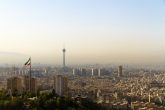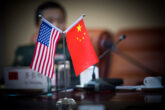February 21, 2017
A Tale of Two Allies: Why Japan and Australia See Two Different Trumps
The first few chaotic weeks of the Trump administration have brought divergent fortunes for America’s closest allies in the Asia-Pacific. Japan, which Trump consistently maligned during the 2016 campaign, has rushed to embrace the new president. Australia avoided his crosshairs on the trail, but was surprised by a jarring phone call between the new president and Prime Minister Malcolm Turnbull, and has become increasingly skeptical of him since the inauguration. It is no surprise that the Trump presidency should cause a stir in allied capitals. His longstanding antipathy for U.S. partners has been well-documented, after all. But these early experiences show that Trump’s iconoclastic proclivities and erratic temperament could engender allied responses far more complex than the well-known alliance dilemmas of entrapment and abandonment. As allies calculate how Trump’s transactional, protectionist, and neo-Jacksonian foreign policy will affect their security, economy, and domestic politics, they must evaluate how he poses risks to them in each of these domains and devise their engagement strategies accordingly.
While campaigning, Trump made no secret of his disdain for Japan. He repeatedly criticized Tokyo’s financial contributions to its own security, arguing that if Japan did not pay up the United States should begin to withdraw troops, even if that inspired Japan to seek nuclear weapons. On multiple occasions, including since the inauguration, he called Japan a currency manipulator and criticized its trade practices. And he demonstrated almost no interest in Japan’s most pressing security concerns — North Korea, the East China Sea, and the South China Sea. For his own part, Prime Minister Shinzo Abe placed his confidence in a Hillary Clinton presidency, meeting with the Democratic candidate in September — an atypical pre-election move for the Japanese.
Yet upon Trump’s surprise win, Abe was on his doorstep. On November 18, he visited the president-elect in Trump Tower on his way to the Asia-Pacific Economic Cooperation summit, seeking to curry the new leader’s favor with a gold-plated golf club. Japan sought and received an early visit from Secretary of Defense Jim Mattis. During this trip, the Abe government was delighted to receive a reaffirmation of past U.S. declaratory policy that Article V of the U.S.-Japan defense treaty would apply to the Senkaku Islands.
Read the full article at War on the Rocks.
More from CNAS
-
“The Ayatollah Has No Clothes” – with Rich Goldberg and Richard Fontaine
Richard Fontaine is CEO of the Center for American Security, joins Call Me Back to assess the threat FROM Iran and the threat TO Iran. Listen to the full episode on Call Me ...
By Richard Fontaine
-
Lost Decade - The U.S. Pivot to Asia and the Rise of Chinese Power with Richard Fontaine
Richard Fontaine, CEO of the Center for a New American Security, joins Coffee & Conflict to discuss his book The U.S. Pivot to Asia and the Rise of Chinese Power. He dives int...
By Richard Fontaine
-
Sharper: Allies and Partners
Amid intensifying geopolitical challenges, the United States is finding new ways to address security issues by cultivating and strengthening alliances and partnerships. How ca...
By Gwendolyn Nowaczyk & Charles Horn
-
What Can the US Expect From Sri Lanka’s New President?
Washington views Sri Lanka as a “lynchpin” of its Indo-Pacific strategy and seeks a partner committed to strengthening the democratic process and economic governance while pro...
By Keerthi Martyn




